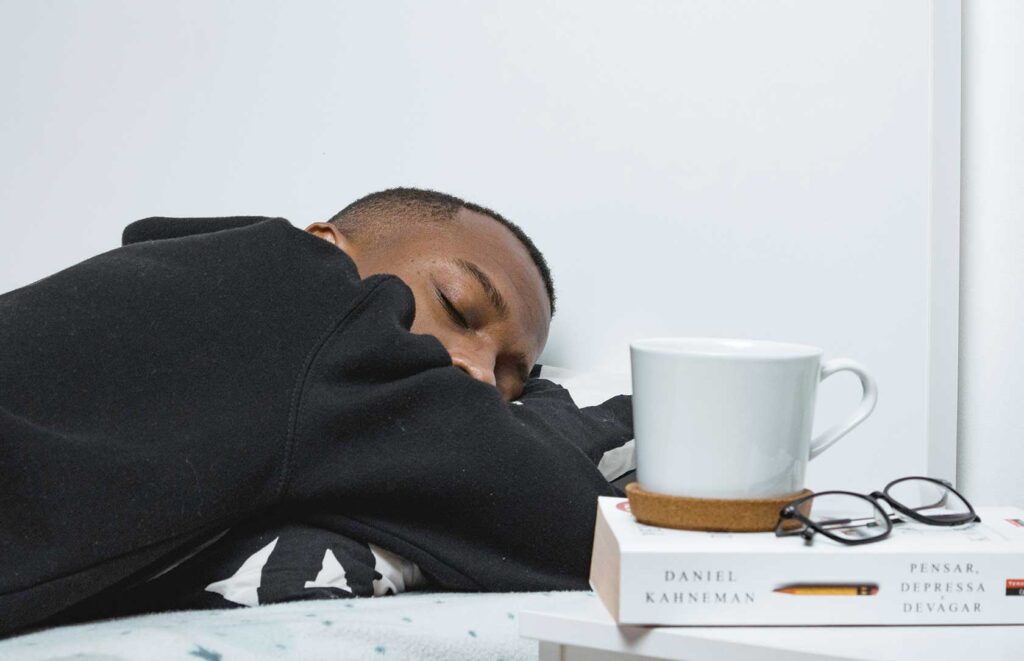Reclaim your health by changing how you sleep
Poor sleep is linked to numerous health issues, many of which plague Black Americans

Getting enough rest feels like a luxury. Between work, family responsibilities, stress and screen-time overload, falling asleep and staying asleep can seem nearly impossible.
It’s a natural process our bodies need most to restore, focus, and thrive. Yet, according to the Centers for Disease Control and Prevention, nearly 1 in 3 adults in the United States doesn’t get enough sleep, and the consequences are more than just grogginess.
Chronic sleep deprivation is tied to anxiety, depression, heart disease, weakened immunity and poor cognitive function.
May is “Better Sleep Month,” and experts are urging people to rethink their relationship with rest.
Whether you struggle with insomnia, late-night doom-scrolling, or an over-packed schedule, simple shifts in your routine can help you reclaim restorative sleep and ultimately, better health.
A recent law school graduate, Taylor Hall knows firsthand how the pressure to do it all can lead to sleepless nights.
Sleep has often taken a backseat to ambition. Between late-night study sessions, family responsibilities and preparing for the bar exam, Hall has struggled to find balance.
“My sleep schedule is not structured at all,” said Hall. “Some days I’ll sleep 10 hours, other days just two or five. It really just depends on everything I’m juggling.”
Hall said her erratic resting patterns stem from the challenge of managing her academic and career goals as well as her social and spiritual obligations.
“You’re trying to be in school, build a career, show up for your family and friends, go to church there just aren’t enough hours in the day. Something gets sacrificed and unfortunately, sometimes it’s sleep,” she said.
Still, she’s been making changes. Hall exercises five days a week and has implemented screen-time locks on her phone to prevent doom-scrolling at night.
“If I spend an hour on a social media app, it locks me out. That’s my way of trying to build better habits so I can get rest and not be up all night scrolling when I should be sleeping. It’s a work in progress, but I’m trying.”
Prioritizing rest over hustle
Emmanuel Eyeh, a medical aide who works 40 to 50 hours per week, is adamant about protecting his rest. Sleep is a non-negotiable part of his wellness routine.
“I work full time in home care and sometimes I do overtime, but I always make sure I don’t let work take over my health,” he said. “I feel like in this country, to survive, all people do is work and pay bills and I don’t want that kind of life.”
Though he’s relatively new to the healthcare field, Eyeh already sees how burnout and overworking can affect caregivers and patients alike. That’s why he draws firm boundaries.
“I don’t joke with my sleep time,” he said. “I sleep at least eight hours a day, sometimes six if necessary, but I make sure I have time to rest, eat well, do my morning devotion and exercise. Life isn’t just about chasing money.”
His approach reflects a growing sentiment among many younger Black professionals that hustle culture doesn’t have to come at the cost of health.
Sleep is more than rest — it’s a lifesaver
For sleep advocate Emma Cooksey, prioritizing rest became a matter of survival. Misdiagnosed for years, she eventually learned she had obstructive sleep apnea, a disorder that repeatedly stops and starts breathing during rest.
Once treated with a CPAP (Continuous Positive Airway Pressure) machine, her energy, memory and mental clarity drastically improved.
“I used to just push through the fatigue,” Cooksey said. “I was falling asleep driving. I couldn’t focus. People don’t realize sleep impacts your blood pressure, your immune system, your emotional regulation, everything.”
Cooksey, who hosts the Sleep Apnea Stories podcast, now educates people, especially women and communities of color, about the signs of sleep disorders and how to seek help.
“We’re not taught to take fatigue seriously,” she said. “But if you’re constantly tired despite getting seven or eight hours of sleep, or if you snore loudly, wake up gasping, or experience daytime fog, you should talk to a sleep specialist.”
Building better sleep habits
Dr. Christopher J. Allen, a pediatric neurologist and sleep medicine specialist, says there are many common sleep issues affecting people today, one of which is sleep insufficiency.
“That means you’re not getting enough sleep, which can lead to other disorders, from diabetes to high blood pressure to even Alzheimer’s,” he said. “A lack of sleep can lead to cardiovascular disease; high blood pressure and it can worsen diabetes.”
Allen recommends that adults aim for seven to nine hours of sleep daily. But he acknowledges that’s easier said than done, especially for those juggling multiple jobs, kids or caregiving responsibilities.
Still, he pushes back against hustle culture. “If you’re bragging about only needing four or five hours of sleep, you’re literally killing yourself earlier,” he said bluntly.
He is a big believer in improving “sleep hygiene,” which describes healthy nighttime routines. “When it’s close to bedtime, give yourself time to wind down. Sleep in a cool environment. And remember: the bed is only for three things and they all start with S,” he jokes. “Sleep, sickness, and… you know, that third one.”
He recommends avoiding screens and heavy meals before bed and discourages the use of sleep aids without professional guidance.
“If you’re taking something to fall asleep, that’s your body telling you something’s off. Talk to your doctor or a sleep specialist,” he said. “Your body naturally wants to sleep. You just need to get out of its way.”
Tips on building better sleep habits
• Keep a consistent sleep schedule, even on weekends.
• Establish a relaxing nighttime routine, like journaling, reading, or dimming the lights.
• Avoid screens and blue light 30 to 60 minutes before bed.
• Reduce caffeine and alcohol late in the day.
• Create a cool, quiet and dark sleep environment.
• Consider talking to your doctor if sleep issues persist.
This post was originally published on Defender Network






